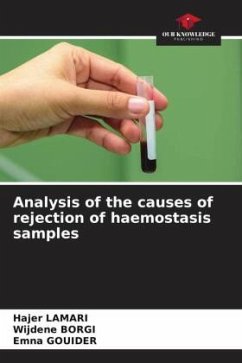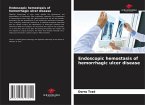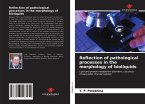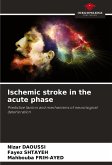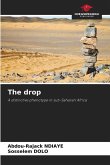Pre-analytical requirements are specific to hemostasis. Failure to meet these requirements is often the reason for sample rejection. The number of rejected samples is a quality indicator and its monitoring is encouraged.Our objectives were to identify the main causes of rejection of haemostasis samples in the haematology laboratory of the Aziza Othmana Hospital and to propose appropriate corrective measures.We conducted a retrospective study of the 7299 requests for hemostasis examinations processed in the laboratory from 01/07/2020 to 30/06/2021. We recorded the number of rejected specimens as well as the identified non-compliances.The rejection rate was estimated at 5.63%. The non-compliance "Coagulated sample" was the first cause of rejection identified (45.93% of cases), followed by the reasons "Insufficient quantity" (22.08%) and "Hemolyzed sample" (15.73%).Our work is part of a quality improvement approach. It has enabled us to carry out an inventory of the causes of rejections in haemostasis and to propose appropriate corrective measures.
Bitte wählen Sie Ihr Anliegen aus.
Rechnungen
Retourenschein anfordern
Bestellstatus
Storno

